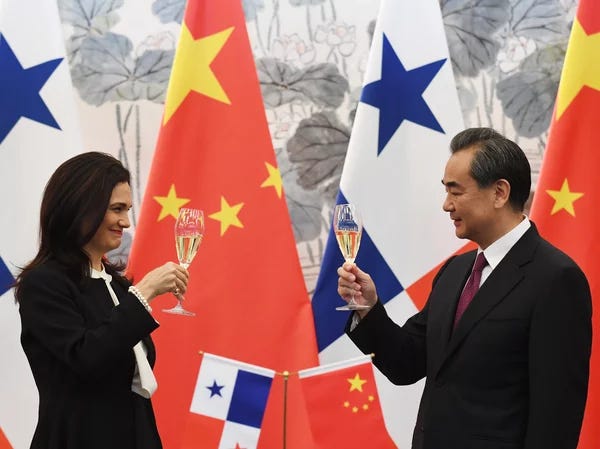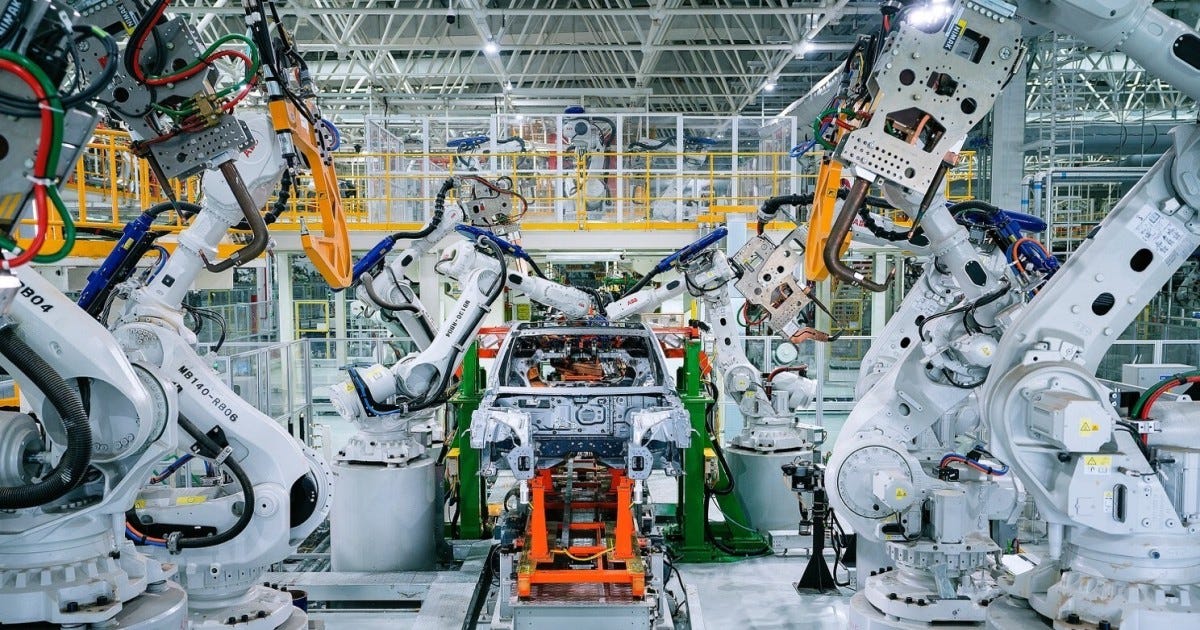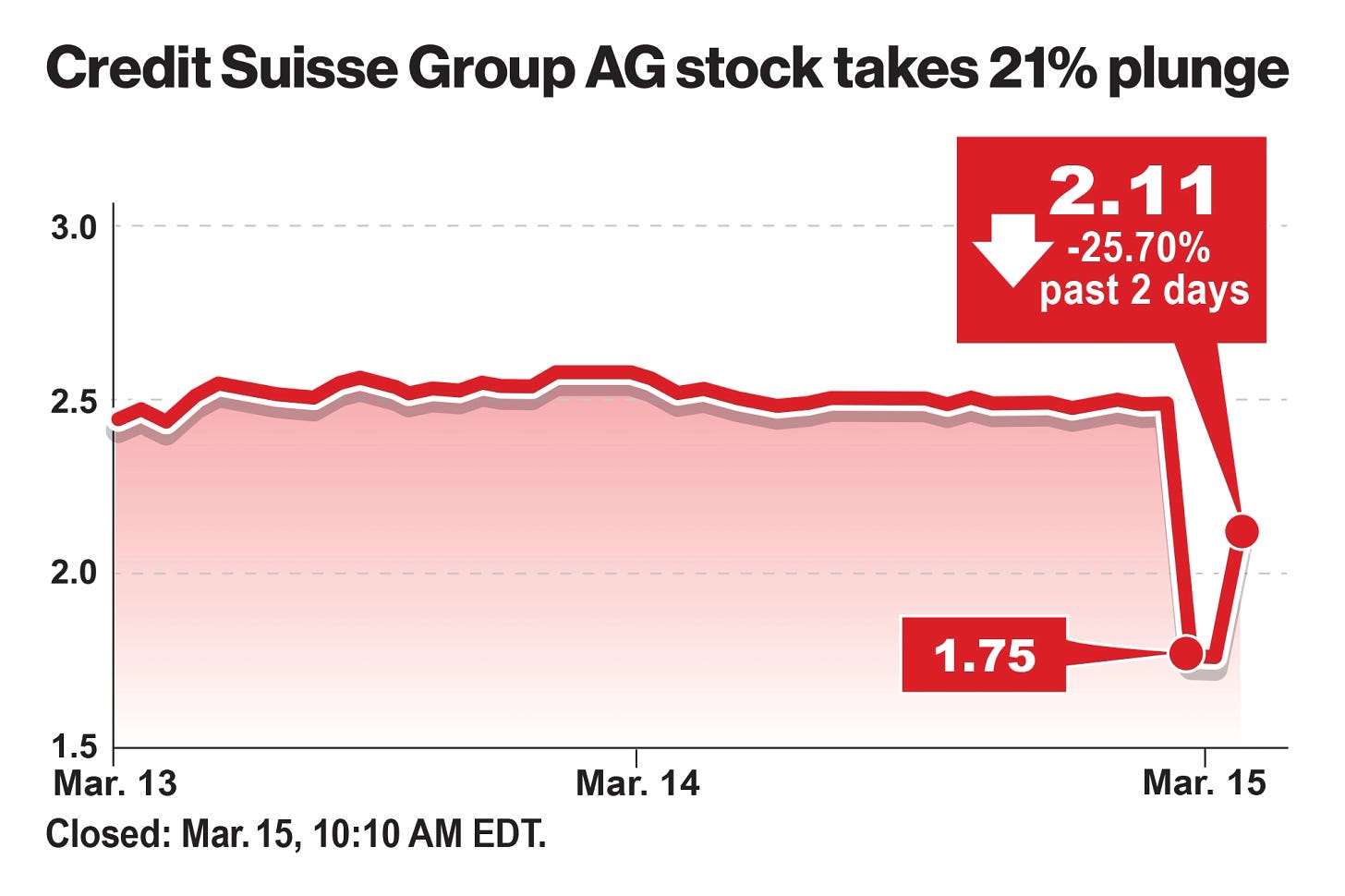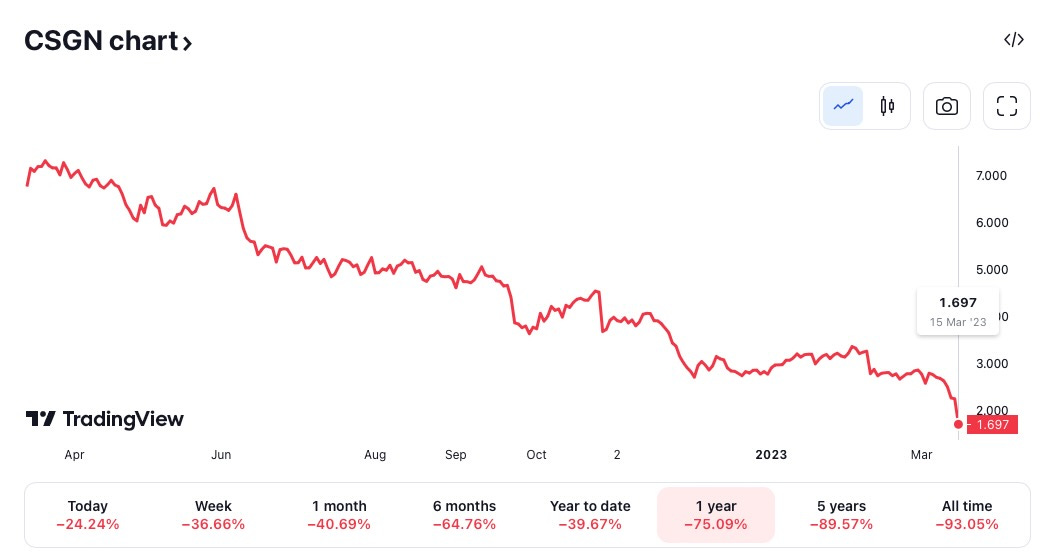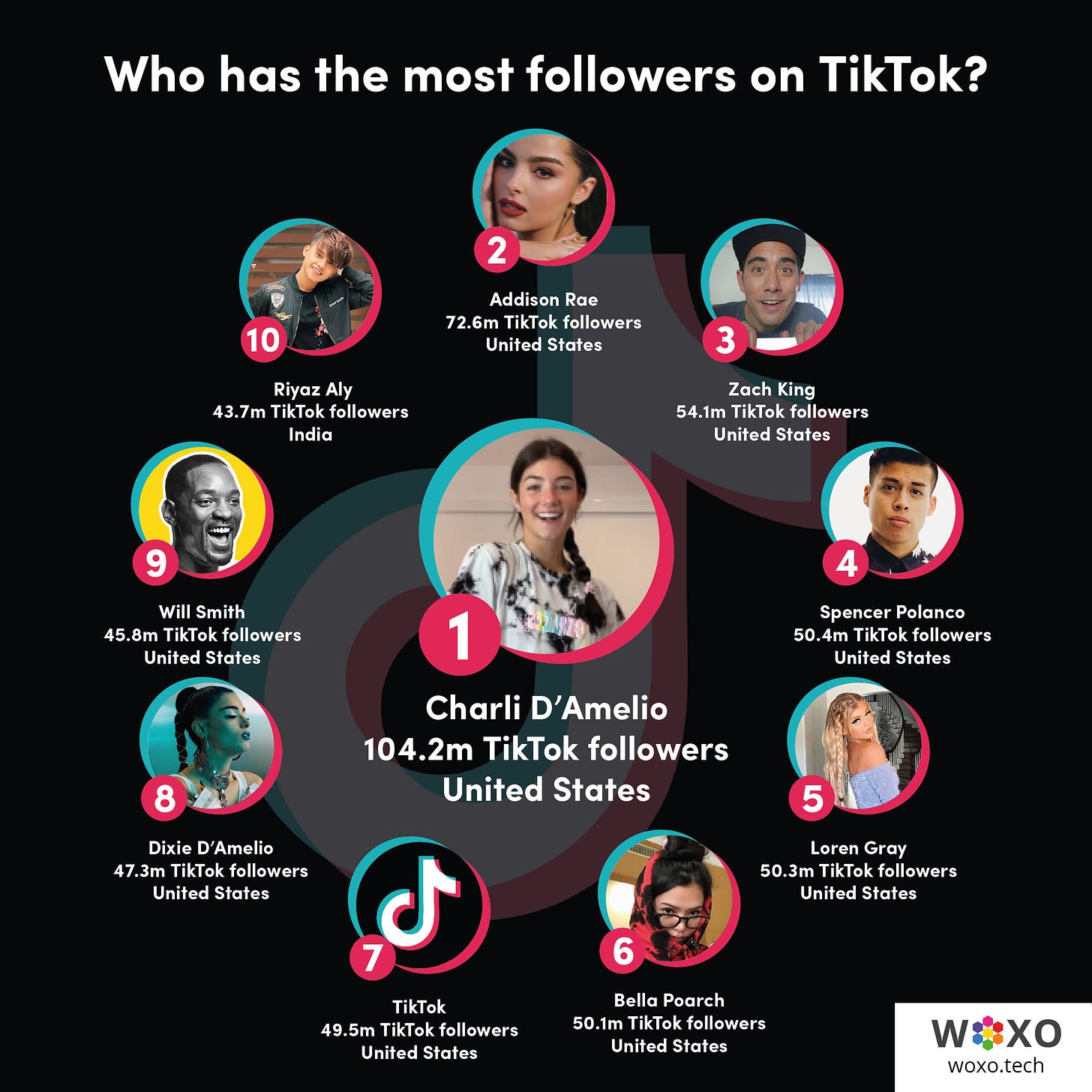Tick Tock
Honduras seeks a better state of being, China's economy surging, Credit Suisse plunging, TikTok ban anti-social, Former PM Keating: AUKUS is the worst international decision in a over a century
UPDATE: Honduras joins almost all other Central American states to cut ties with Taiwan and gain the benefits of China’s win-win foreign policy. Infrastructure is the foundation for economic development and China does it at speed and scale.
With the re-opening of China and with the ending of Covid restrictions, a new confidence seems to be surging through the country. While the next two years are seen to be a particularly dangerous time, with the real prospect of armed conflict with the US, beyond that it is felt that China’s time will have come.
In November, Nouriel Roubini, “Dr. Doom” warned that the global economy was facing a “variant of another Great Depression” due to rising public and private debts, stubborn inflation, aggressive interest rate hikes, and a number of other “mega threats.” Roubini warned that when one sector of the economy has problems with debt and profitability, those problems “can morph into a banking crisis.”
The US Treasury department and Republican senators don’t use TikTok. But TikTok has around 110 million monthly active adult users(MAUs) in the United States. TikTok is so enmeshed in popular culture that everyone from Meta Platforms to Google’s YouTube has launched a TikTok-like feature. Most of its users are young and Democrats - Biden has only a few seconds to convince them to give up TikTok.
Former Prime Minister Paul Keating launched a vehement attack on Australia’s Labor government over the AUKUS submarine agreement. Keating insisted that China posed “no threat to Australia” and “the Chinese had never implied or said they would threaten Australia; threatening Australia would mean an invasion.” Taiwan was not a vital interest of Australia’s – and that remained the case.
Honduras opens diplomatic relations with China
Honduras President Xiomara Castro has said she wants her country to open official diplomatic ties with China, in a move that would end its official relationship with the self-ruled island of Taiwan. Castro wrote on Twitter on Tuesday night that she had instructed her foreign minister Eduardo Reina to begin the process of recognising the People’s Republic of China. China welcomed the move to develop friendly ties on the basis of upholding the one-China principle, Foreign Ministry spokesman Wang Wenbin said on Wednesday.
Honduras is one of the poorest countries in Central America with nearly 75 percent of the population living in poverty. Analysts said Honduras move was not unexpected given Xiomara’s campaign comments and recent discussions with China about financial assistance. In February Reina announced Beijing would provide the funding for another dam along the Patuka River.
“We have to look at things very pragmatically and seek the best benefit for the Honduran people […] the decision to sever relations with Taiwan is rooted in ‘pragmatism, not ideology’ as the country endures economic hardships. The global situation is complicated. We need to open up. We need investment. We need cooperation.” (FM Eduardo Reina)
In Central America, a region that the United States has long seen as within its sphere of influence, Nicaragua broke off diplomatic relations with Taiwan in 2021. Only Belize and Guatemala now formally recognise Taiwan, which will be left with just 13 formal diplomatic allies around the world, compared with 22 when Tsai Ing-wen took office.
“it could cause the public in Taiwan to have a little panic since we’ve been abandoned by another country again”
“Central American recognition of Taiwan is a legacy of the Cold War”
“When it comes to diplomatic allies, it seems Taiwan is on borrowed time”
Costa Rica is one of several other countries in the region, including Nicaragua, El Salvador and the Dominican Republic, that have also ditched Taiwan in favour of relations with China in recent years. The trend demonstrates the desire of many poor countries to avoid choosing sides as tensions grow between the US and China, both seen as important sources of potential trade and investment.
Read more here, here and here.
China’s Economy Surges
With the re-opening of China and with the ending of Covid restrictions, a new confidence seems to be surging through the country. While the next two years are seen to be a particularly dangerous time, with the real prospect of armed conflict with the US, beyond that it is felt that China’s time will have come. Australians are now largely denied this view since the timorous Australian media is no longer present in China.
The China of burgeoning middle-class consumption, a decade of 5 percent plus economic growth, the biggest market for all East Asia and Oceania, and the pivotal point for global supply chains is unrecognisable from the China of Covid, severe economic disruption, imploding property sector, and local governments mired in debt.
The China Collapse propagators have always thrived on wishful thinking, but as the US moves more decisively towards containing China and whistles up a posse of allies to help the cause, it could lead to dangerous strategic miscalculation.
Back in China after 17 months absence, China is not going anywhere other than to become stronger and more powerful. Travelling in Shandong Province (pop.102m) and then by fast train to Beijing at 305 k/h, it seems as if the Chinese economy is resurging. Vast construction sites are populated by 50 plus cranes working, new high-speed rail lines are going up and eight-lane highways are being rolled out. It is felt that China’s strength is in its investments in engineering, advanced manufacturing, artificial intelligence, application of 5G, and green energy.
In Shandong Province, longwall underground coal mines are operated remotely by two engineers sitting at computer screens on the surface using Huawei’s 5G. An energy company employing 220,000 staff has digitalised and centralised its entire operations and is now paperless. A green energy centre near Changsha in Hunan Province reportedly employees 10,000 engineers.
The US led global semi-conductor ban on exports to China is clearly seen as a head wind, but as China is the world’s biggest market it will slow development outside China as Japan, South Korea and the Netherlands lose their main market, and hence drivers of innovation and investment. China will divert even more resources into this sector to catch up by old-fashioned import substitution. In view of the huge disparity now in China’s favour in engineering capacity it is expected that the US bans will turn out to be counterproductive.
China has reached that point of development underpinned by the rapid growth of advanced manufacturing. Gone to Vietnam, Bangladesh, and Cambodia, and elsewhere, are the low value-added industries of toys, cigarette lighters and cheap clothing which have been replaced by advanced, digitally controlled, manufacturing. China leads the world in electric vehicles. Tesla is expanding its production in China. Green energy is a major priority, not least because China now so deeply mistrusts the West that it is determined for security reasons to slash its reliance on imported oil and LNG.
The Chinese leadership seem convinced that its advanced manufacturing already has the lead, and it will continue to open an even bigger gap. This week’s National Peoples’ Congress will focus on these themes.
Read full article here.
Geoff Raby AO was Australia’s ambassador to China (2007–11); ambassador to APEC (2003–5); and ambassador to the World Trade Organisation (1998–2001).
‘Contagion’ from US bank failures and Credit Suisse’s problems could spread globally
In November, Nouriel Roubini, “Dr. Doom” warned that the global economy was facing a “variant of another Great Depression” due to rising public and private debts, stubborn inflation, aggressive interest rate hikes, and a number of other “mega threats.” Roubini warned that when one sector of the economy has problems with debt and profitability, those problems “can morph into a banking crisis.”
After Silicon Valley Bank (SVB) and Signature Bank—which were both heavily exposed to the now struggling tech startup and crypto ecosystems—collapsed last week, his words seem prescient. And despite regulators stepping in to save depositors at both banks over the weekend, Roubini still believes the banking crisis is far from over. Roubini warned in a Newsweek interview Monday that there is a “natural lag” to “global contagion,” and regulators can’t always save the day.
Roubini has said that SVB and Signature’s problems could spread to U.S. regional banks that have smaller depositor bases and securities that have lost value. He noted that if these banks are forced to sell their holdings at the current market value as depositors request their money back, it could be a disaster—just like it was for SVB and Signature. “The run may continue,” he argued. “The crisis is not over.”
“There is at least one financial institution in Europe that has been historically undercapitalized, have had problems of recapitalizing, might have some bad assets, some exposures to long-term securities and unrealized losses,” he told Newsweek Monday. “If something were to happen with this institution…that will be much more systemically important—we’re speaking about institutions with trillions of dollars of assets, not $400 billion like SVB.”
On Wednesday, shares of the Swiss bank Credit Suisse tanked more than 20% after its largest shareholder—the Saudi National Bank—said it wouldn’t inject more money into the bank. Credit Suisse’s issues sent shares of European banks down sharply on Wednesday, with the Euro Stoxx Bank Index dropping 8.3%.
“The problem is that Credit Suisse, by some standards, might be too big to fail, but also too big to be saved. It’s not clear that…the Federal system has enough resources to engineer a bail out,” the economist told Bloomberg Wednesday, adding that if Credit Suisse doesn’t get an infusion of capital from somewhere “bad things can happen […] if we get a banking crisis from a big bank implosion, it could spread to governments and the wider economy.”
“A banking crisis can morph into a debt crisis for the sovereign, in a doom loop between the banks,” he said. “The problem is you cannot easily isolate one sector of the economy from another, they’re all interconnected.”
Roubini, who has long held that a deep recession is the most likely outcome for the global economy, said this week that banks’ recent issues mean a “hard landing” is now “clearly unavoidable” as well. “Economic stability and fighting inflation require raising policy rates much higher. But now financial stability risks require lower policy rates. So we will get a crisis,” he said in a Wednesday tweet.
Read full article here.
WSJ: U.S. Threatens Ban if TikTok’s Chinese Owners Don’t Sell Stakes
According to data from app tracker Data.ai, TikTok has around 110 million monthly active adult users(MAUs) in the United States. TikTok is so enmeshed in popular culture that everyone from Meta Platforms to Google’s YouTube has launched a TikTok-like feature. Even Spotify recently announced a TikTok-style feed. In 2020, TikTok generated US$1.4 billion in ad revenue. In 2021, US$4 billion and in 2022 projected revenue was US$12 billion.
The question is will Biden really follow through on a ban, given how many young people are fans of TikTok? The Wall Street Journal pointed out a few days ago that TikTok promises to be a great campaign tool for the Democrats - less so for Republicans, who have fewer voters in TikTok’s core demographic.
The move represents a major shift in policy on the part of the administration, which seeks to toughen its stance based on an alleged possibility of a security threat from TikTok, owned by Beijing-based ByteDance Ltd. The Treasury Department, which leads Cfius, (Committee on Foreign Investment in the U.S) made the sale demand recently, but declined to comment.
“Our intelligence community has been very clear about China’s efforts and intention to mold the use of this technology using data in a worldview that is completely inconsistent with our own” (Deputy Attorney General Lisa Monaco)
In 2020, the Trump administration sought to force a sale of TikTok to U.S.-majority ownership, based on similar national security concerns. But that effort ultimately ran aground when TikTok and ByteDance successfully went to court to block a proposed federal ban.
The companies successfully argued that the ban would violate a law known as the Berman amendments, which exempt cross-border communications from the president’s powers to address national security threats through economic sanctions.
The Biden administration’s move against TikTok could face a lengthy and bumpy road as well. The company can argue that any forced sale would amount to a ban, because the Chinese government wouldn’t allow the TikTok algorithm to be sold along with it. The company also might be able to argue that the move would violate the Berman amendment, as well as the First Amendment.
It wasn’t immediately clear what the next step by the U.S. would be, and the people familiar with the matter say a resolution could be months away. TikTok’s chief executive, Shou Zi Chew, is scheduled to appear before the House Energy and Commerce Committee next week to address lawmakers’ questions on the security issues.
TikTok executives have said that 60% of ByteDance shares are owned by global investors, 20% by employees and 20% by its founders, though the founders’ shares carry outsize voting rights, as is common with tech companies. The company was founded in Beijing in 2012 by Zhang Yiming, ByteDance Chief Executive Liang Rubo and others.
Paul Keating: AUKUS is the worst international decision
Former Prime Minister Paul Keating launched a vehement attack on Australia’s Labor government over the AUKUS submarine agreement, accusing PM Anthony Albanese of relying on “two seriously unwise ministers, Penny Wong and Richard Marles”. Keating insisted that China posed “no threat to Australia” and “the Chinese had never implied or said they would threaten Australia; threatening Australia would mean an invasion.” Taiwan was not a vital interest of Australia’s – and that remained the case.
“The worst international decision by an Australian Labor government since the former Labor leader, Billy Hughes, sought to introduce conscription” in the first world war […] We have gone from a defend Australia to a forward defence policy”
Keating said one of the critical problems in Australian policy was “that defence has overtaken foreign policy. As a consequence, we’re not using diplomacy.” Anthony Albanese has emerged as an Australian prime minister wielding an American sword to rattle at the neighbourhood to impress upon it the United States’ esteemed view of its untrammelled destiny. Albanese has “screwed into place the last shackle in the long chain the United States has laid out to contain China”.
No mealy-mouthed talk of ‘stabilisation’ in our China relationship or resort to softer or polite language will disguise from the Chinese the extent and intent of our commitment to United States’ strategic hegemony in East Asia with all its deadly portents.
In earlier times, he said Labor has “invariably got the big international ones right”. This includes former Labor leaders Arthur Calwell opposing Australian military participation in the Vietnam war and Simon Crean opposing the Iraq war. But the announcement of the submarine program details, which could cost Australia up to A$368 billion over three decades, inspired Keating to make a direct challenge to Albanese:
I dare the prime minister to explicitly suggest or leave open the question that Australia might go to war over Taiwan – at the urgings of the United States or anyone else.
Keating called Foreign Minister Penny Wong, “compromised” and Defence Minister Richard Marles as “completely captured by the idea of America.” On Anthony Albanese, Keating said he “never displayed any deep or long-term interest in foreign affairs [and] fell in with Wong and Marles as leader of the great misadventure.”
Keating also attacked Andrew Shearer, the head of the Office of National Intelligence, and the Australian Strategic Policy Institute. He said, “remarkably, a Labor government has picked up Shearer’s neo-con proclivities and those of ASPI”, describing the latter as “a pro-US cell” headed by a former chief of staff to ex-Foreign Minister Marise Payne.
Read full story here.
Full interview here.




